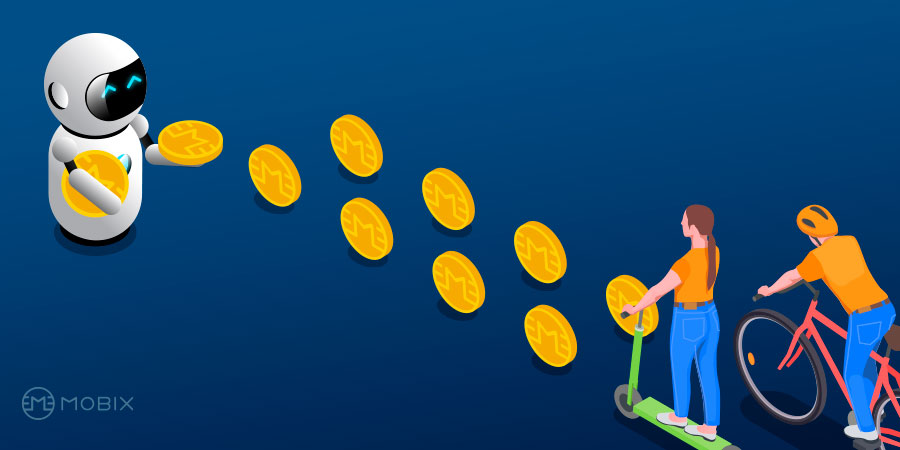As some of our readers will already know, MOBIX is going to run on the soon-to-be launched Fetch.ai blockchain. But what is Fetch.ai and how does this partnership benefit the MOBIX project overall?
Fetch.AI and it’s background
Fetch.ai is a Cambridge-based artificial intelligence lab that was co-founded by Humayn Sheikh, Toby Simpson and Thomas Hain in 2017. Mr. Sheikh was a founding investor in Deepmind and Mr. Simpson was an early Deepmind developer (you can find out more about Deepmind here and here). Mr. Hain is a professor at the University of Sheffield and is an authority on advanced machine learning. You can find out more about each leading individual on the Fetch.ai team, including links to their respective Github and Linkedin accounts, here.
Fetch .aihas already developed a number of exciting partnerships, including (but not just); Blockchain for Europe, Cambridge University, Ankr, Datarella, T-Labs, Bosch and, of course, MOBIX.
So, what differentiates Fetch.ai from other blockchain projects?
The Fetch.ai goal is significantly different to many of the other ‘blockchain’ and ‘AI’ projects currently in development and, upon first glance, a non-technical person could perhaps be forgiven for not fully grasping the dizzying scope of Fetch.ai‘s aim. Fetch.ai is not just creating a buzzword Frankenstein- but is actually driving toward the ultimate goal of creating an entirely autonomous agent-based digital economy.
Fetch is building the framework that can make this possible, through a unique combination of multiple cutting-edge technologies. In Mr. Sheikh’s, own words:
“Today’s internet is built for e-commerce solutions but the new web needs to enable more autonomous solutions and this requires building the infrastructure and tools to make it deployable. Fetch.AI is building the deployment infrastructure, which brings the new AI-based autonomous machine economy to life”.
Because of this aim, from a technical perspective, Fetch.ai is fascinating. It encompasses 4 different pieces of technology, which are seamlessly linked together through the project;
- The Open Economic Framework.
- The AEA Framework.
- The Agent Metropolis.
- The Fetch.AI Blockchain.
How is the Fetch.ai blockchain different?
Fetch.ai’s blockchain uses a nuanced combination of Proof-of-Stake (PoS) with Proof-of-Work (PoW) to deliver a consensus known as Useful Proof-of-Work (UPoW). New blocks are created through a normal PoS protocol with the overall transaction order then being determined by work carried out in between two blocks.
This work is recorded on a directed acyclic graph (DAG) that grows between the blocks. The DAG is started with the previous block and is then terminated by the block minted by PoS.
Smart contracts vs. Autonomous Economic Agents (AEAs)
Fetch’s AEAs are very different to the smart contacts that other protocols have developed to provide services. Smart contracts simply perform a service once parameters have been met, while AEAs are digital entities that are able to make their own economic decisions, based upon the options available to them and their knowledge of their human client’s preferences. In short- they provide intelligent direct provider-to-consumer interactions, without a human having to inefficiently research the best deal that suits their preferences.
AEAs can learn more about the wider economy they participate in or further refine client preferences through a series of in-built advanced AI intelligence algorithms. They can also work together with other agents in the framework in order to find solutions to complex issues, requests or operations. The system is permissionless and requires no human input. The framework is expected to be capable of enabling millions of transactions per second, allowing for agents to perform a myriad of tasks on a global scale.
Some use cases for agents are;
- Autonomous AI Travel (direct business to consumer).
- Decentralised delivery.
- Consumer good purchasing.
- Supply chain interaction and ordering.
- Collective learning (i.e., providing access to anonymised medical records to allow quicker research and educate direct treatment strategies).
- Risk management.
- Smart booking systems.
- Smart mobility and transport via multi-agent mobility services.
How Fetch.AI benefits MOBIX?
The first significant benefit of working with Fetch.ai is the ability to develop AEAs focused on facilitating smart micro-mobility – these agents (such as the MOBIX reward agent) will be performing the heavy lifting behind the scenes and provide a great deal of the functionality that users will be able to enjoy when using the MOBIX wallet. These agents will be tracking user’s usage mining, putting users in contact with a micro-mobility service provider that suits their preference (also using Datarella’s smart SSI to protect their data) and potentially even planning user journeys.
The second significant benefit of Fetch.ai is that it’s blockchain (switch to mainnet staking on September, 15th) will be the chain that the MOBX reward token will be exchanged upon. This will allow the MOBIX reward agent to award tokens to micro-mobility users and, further, will allow users to book and pay for their micro-mobility services and infrastructure offerings using their MOBIX wallet. Also, due to the enormous number of potential transactions supported by the Fetch.AI blockchain, MOBX transactions will be processed lightning-fast.
In Closing
Hopefully this article has been useful in illustrating just how amazing the Fetch.ai project is, and how it is helping MOBIX bring smart micro-mobility solutions to consumers.
Remember that the MOBIX stakedrop is occurring on the 20th of September October 2021! In order to participate and receive the stakedrop you need to be staking FET tokens on Fetch.ai mainnet – to learn more about how to participate check here and if you have any further questions then join our telegram here!

